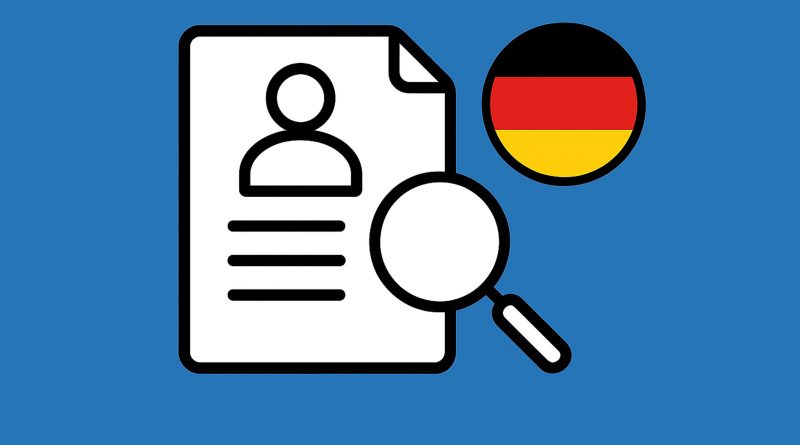How to Apply for Jobs in Germany: Step-by-Step Guide
Germany is one of the most sought-after destinations for skilled professionals worldwide. Known for its robust economy, high-quality healthcare, and work-life balance, Germany offers numerous opportunities for international job seekers. This guide provides a detailed step-by-step approach to applying for jobs in Germany, with helpful tables to make the process easier to follow.
Why Work in Germany?
Germany is a global hub for technology, engineering, healthcare, and research. Professionals from all over the world are attracted to the country due to competitive salaries, strong labor rights, and a stable economy. Popular industries include:
- Information Technology (IT)
- Engineering & Manufacturing
- Healthcare & Life Sciences
- Finance & Banking
- Research & Development
In addition to career growth, Germany provides opportunities for permanent residency and family relocation, making it an attractive long-term option.
Step 1: Check Your Eligibility to Work in Germany
Before starting your job search, it is crucial to check if you are eligible to work in Germany. The table below summarizes eligibility requirements:
| Requirement | Details |
|---|---|
| Work Visa / EU Status | Non-EU/EEA citizens need a work visa or EU Blue Card |
| Qualifications | Recognized university degree or vocational training; regulated professions require certification |
| Language Skills | German proficiency improves chances, but English is sufficient for some roles |
| Professional Experience | Relevant experience in your field is highly recommended |
Tip: Visit Make-it-in-Germany for official guidelines on work visas, qualifications, and recognition procedures.
Step 2: Prepare Your Resume (Lebenslauf) and Cover Letter
German employers value structured and professional application documents. Your resume (Lebenslauf) and cover letter should be tailored to each job application.
Resume Tips:
- Maximum 1–2 pages
- Personal details, education, work experience, skills, and language proficiency
- Reverse chronological order for work experience
- Optional professional photo
Cover Letter Tips:
- Address the company directly, if possible
- Highlight your achievements and fit for the role
- One-page length
- Use keywords like “jobs in Germany 2025” and “apply for German jobs” naturally
| Document | Key Points |
|---|---|
| Resume | Concise, professional, reverse chronological, optional photo |
| Cover Letter | One-page, tailored, mention achievements and motivation |
Step 3: Job Search in Germany
Finding the right job is easier with the right platforms and resources.
| Platform | Description |
|---|---|
| Make-it-in-Germany.com | Official portal for skilled international workers |
| Indeed.de | Job search engine for multiple industries |
| Networking and job applications in German companies | |
| German professional networking platform | |
| Company Websites | Apply directly through company career pages |
Tip: Filter jobs by location, industry, and experience to maximize your chances.
Step 4: Apply Online or via Email
Most German companies accept online applications. Follow these steps:
- Read the job description carefully
- Tailor your resume and cover letter
- Submit documents in PDF format (preferred)
- Track all applications and follow up if necessary
| Step | Action |
|---|---|
| 1 | Tailor documents to the job description |
| 2 | Prepare required certificates and references |
| 3 | Submit application via online portal or email |
| 4 | Track and follow up |
Step 5: Prepare for Interviews
If shortlisted, you may be invited for virtual or in-person interviews. German interviews are structured and formal.
| Interview Tips | Description |
|---|---|
| Punctuality | Always be on time; lateness is unacceptable |
| Research | Know the company, role, and industry trends |
| Questions | Be ready for behavioral and technical questions |
| Attire | Dress professionally; conservative attire is preferred |
Tip: Prepare examples of your achievements to demonstrate your skills effectively.
Step 6: Secure a Work Visa or EU Blue Card
After receiving a job offer, you must apply for a work visa or EU Blue Card.
| Visa Type | Requirements |
|---|---|
| EU Blue Card | Highly skilled workers with minimum salary requirement |
| Work Visa | Non-EU workers; may require additional documents |
| Required Documents | Passport, job offer, qualifications, health insurance, proof of finances |
Tip: Use the Make-it-in-Germany Visa Guide for detailed step-by-step instructions.
Step 7: Relocate and Integrate
Once your visa is approved, relocation begins. Key steps include:
| Step | Details |
|---|---|
| Accommodation | Use websites like ImmobilienScout24, WG-Gesucht |
| Registration | Mandatory at the local registration office (Anmeldung) |
| Bank Account | Required for salary payments |
| Language | Learning German will help daily life and workplace integration |
Tip: Networking and joining local communities can help you settle quickly.
Final Tips for a Successful Job Application
- Start early and plan ahead
- Network through LinkedIn, Xing, and professional events
- Keep your CV and profile updated
- Be patient and persistent; the process can take several weeks
Conclusion
Applying for jobs in Germany can be streamlined with careful planning and reliable resources. Make-it-in-Germany.com is an excellent portal to guide international professionals through each step, from checking eligibility to securing a visa and relocating. By following this step-by-step guide, tailoring your documents, and leveraging the right job platforms, you can successfully start your professional journey in Germany.

